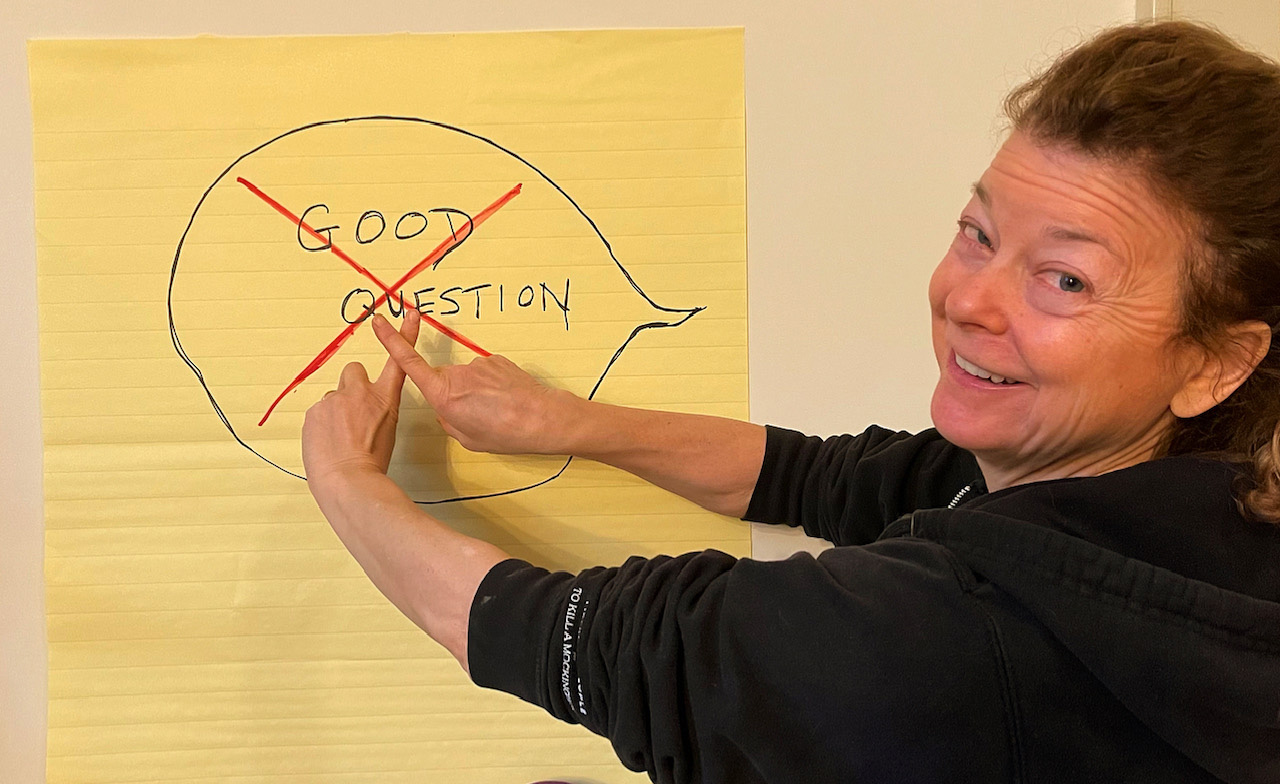
As I mentioned in last week’s post, my preference for beginning a meeting or presentation is to start with a story, statistic or question.
After that? State your question policy: before, during or after.
What would those sound like?
- “Before I begin, does anyone have any questions?”
- “Feel free to jump in if you have a question,” or
- “My request is that you hold your questions until the end—but please make a note of them because I don’t want them forgotten.”
“Before I begin, does anyone have any questions?” is helpful when tension is brewing and people need to let off steam before they can listen to you. The downside is you might get so caught up in triaging the drama that you don’t have time left for your presentation.
The upside to giving people the green light to ask questions as they occur to them is that you short circuit the possibility that someone will be so distracted by what they want to ask you that they find it impossible to listen to your presentation. The potential downsides are you getting distracted from your next point, or that the Q&A become an ongoing conversation.
If the first case occurs, don’t apologize, but do give yourself leeway to collect your thoughts. If the second scenario occurs, don’t hesitate to say, “Because our agenda is long and our meeting time is short, let’s plan to pick this up offline.”
Finally, the upside to asking that questions be held until the end is the certainty you won’t be distracted and the comfort of knowing you’ll have time to cover everything you want to cover. The downsides are the upsides listed above: that people will feel you’re disconnected from their concerns, that they’ll lose their focus, or that there won’t be enough time to get their questions answered.
Regardless of when you have others ask questions, however, my request is that you never, EVER respond by saying, “Good question.”
Why? Because “Good question” generally comes out of a speaker’s mouth when they are unprepared—it’s filler while they consider how they want to answer.
Unfortunately, what the audience hears is, “Ooh, this is the one to listen to,” when the speaker is hoping they will be doing anything but.
The other drawback to saying “good question” is that it makes everyone else who’s asked a question feel theirs wasn’t good.
Consequently, the ONLY time I recommend using “good question” is when you really, really want your audience to listen to your response. And even then, I’d rather hear you say, “I’m glad you asked me that.”
For more on the value of questions—regardless of when they are asked—take a look at, “Do you Mind if I Ask You Some Questions About That?”
